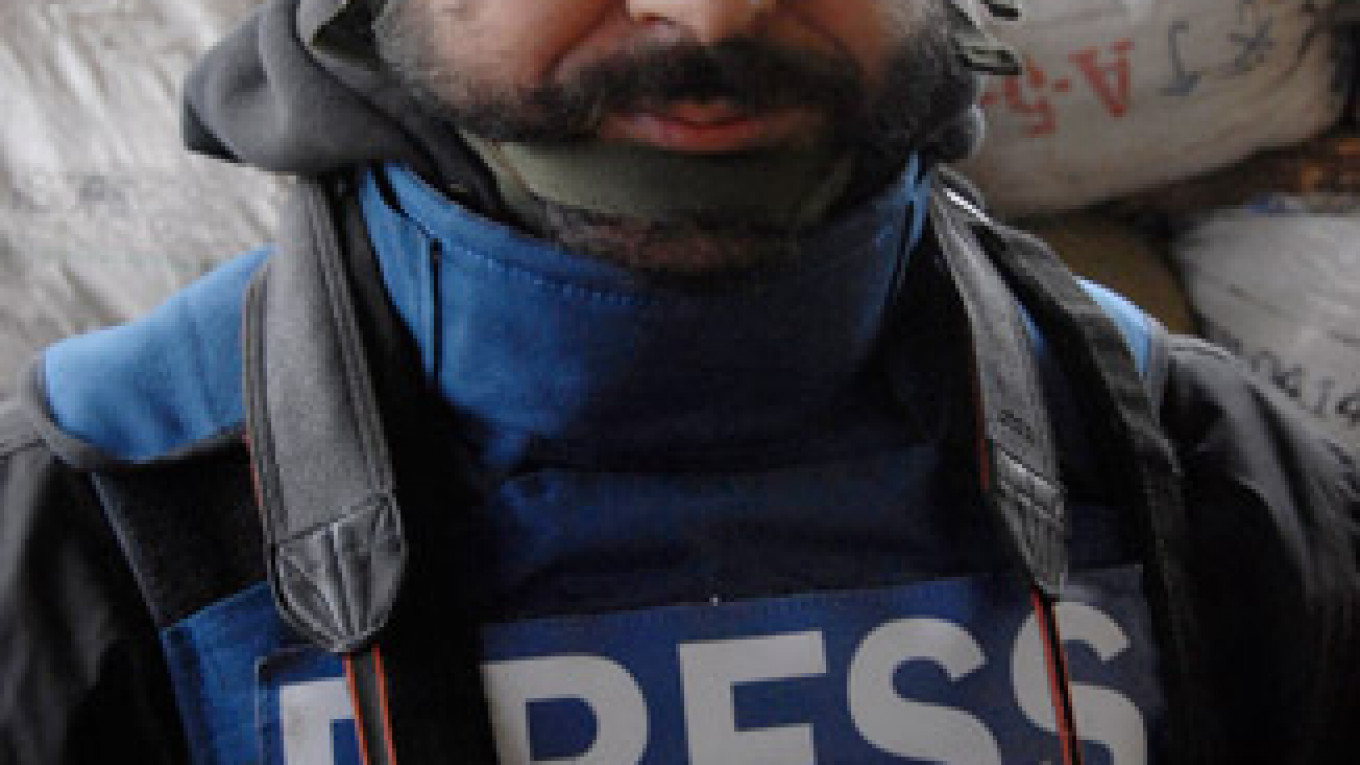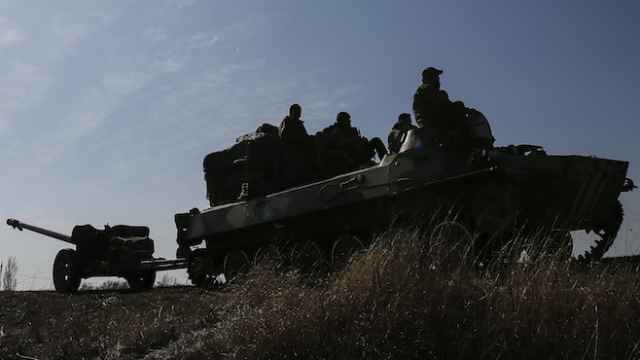A day after a Ukrainian journalist was reportedly killed by shelling near Donetsk, Ukraine's military said Sunday a cease-fire had been fully observed in eastern separatist territories overnight, but warned that pro-Russian rebels were using the truce to regroup for new attacks on government positions.
A drop in violence and moves by both sides to withdraw heavy weapons from the front line had raised hopes a shaky two-week-old cease-fire could hold.
"In order to mislead OSCE representatives, the rebels are moving military equipment from the front line … and bringing it back at night," military spokesman Andriy Lysenko said.
"There are signs the enemy is preparing for further offensives," he said, naming as major targets government-held Mariupol, a strategic port city, and Artemivsk, north of the rebel stronghold of Donetsk.
While there was no shelling in the night, rebels shelled government troop positions 34 times on Saturday, wounding eight Ukrainian soldiers, Lysenko said.
On the other side, rebels said Ukrainian forces had fired mortar rounds and rockets in the Donetsk area 26 times in the past 24 hours, according to separatist DAN press service.
Senior rebel commander Eduard Basurin said on Sunday separatists continued the process of withdrawing heavy weapons from the front line under the eye of the Organization for Security and Cooperation in Europe, DAN reported.
The OSCE, which is monitoring the implementation of the peace deal, said on Saturday it had monitored the pullback of rebel equipment in parts of the Donetsk region and would check daily to see if the weapons remained in the areas they had been pulled back to.
It said it had also observed the withdrawal of two convoys in Luhansk region, but separatists had "prohibited the special monitoring mission from following either of these convoys to their end-points."
//Death of a Journalist
Meanwhile, a Ukrainian journalist was killed by shelling in east Ukraine on Saturday, his newspaper said, even as the Ukrainian military reported a significant drop in rebel attacks, boosting hopes for a two-week-old cease-fire.
Photographer Serhiy Nikolayev died after artillery fire struck near the village of Pesky, northwest of the rebel-held city of Donetsk, daily newspaper Segodnya reported in an online statement.
Earlier, Ukraine's military said fighting had eased significantly in the east overnight but reported GRAD missile attacks on the government-held town of Avdiivka, next to Pesky, which is home to one of Europe's largest coke plants.
On Friday, Ukraine reported the first deaths among its servicemen in three days, underscoring the fragility of the truce, as government troops and rebels pulled back heavy weapons from the front line.
President Petro Poroshenko, who says a military threat from the east would remain even if a peace deal holds, said on Saturday he would submit a bill to parliament to make a formal request for the deployment of United Nations peacekeepers to monitor the cease-fire.
Poroshenko informed U.S. Vice President Joe Biden in a call on Saturday of continued shelling around Donetsk and Mariupol by Russian-backed separatists, the White House said. The two also discussed the inability of the Organization of Security and Cooperation in Europe to verify whether Russian heavy weapons have been pulled back from the front lines, it said.
Biden praised the Ukrainian government's plan to pass reform legislation, recommended by the International Monetary Fund, to stabilize the economy, the White House said in a statement.
The Ukrainian military said the truce had been most fully observed overnight around the rebel-controlled city of Luhansk and near government-held Mariupol on the Sea of Azov.
Kiev fears the port city and industrial hub could become the next rebel target. Rebels humiliated government troops by seizing the strategic town of Debaltseve after the truce was meant to have come into force.
Both government troops and separatists said they continued withdrawing heavy weapons from the front line, "point two" of the peace agreement aimed at ending the conflict, which has killed more than 5,600 people.
A Message from The Moscow Times:
Dear readers,
We are facing unprecedented challenges. Russia's Prosecutor General's Office has designated The Moscow Times as an "undesirable" organization, criminalizing our work and putting our staff at risk of prosecution. This follows our earlier unjust labeling as a "foreign agent."
These actions are direct attempts to silence independent journalism in Russia. The authorities claim our work "discredits the decisions of the Russian leadership." We see things differently: we strive to provide accurate, unbiased reporting on Russia.
We, the journalists of The Moscow Times, refuse to be silenced. But to continue our work, we need your help.
Your support, no matter how small, makes a world of difference. If you can, please support us monthly starting from just $2. It's quick to set up, and every contribution makes a significant impact.
By supporting The Moscow Times, you're defending open, independent journalism in the face of repression. Thank you for standing with us.
Remind me later.






